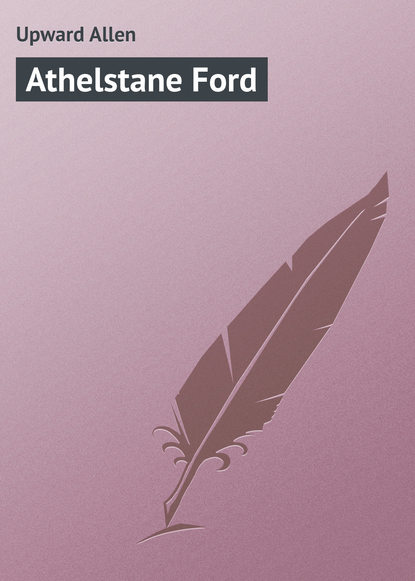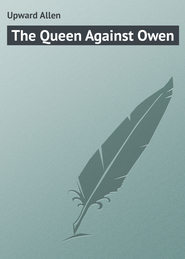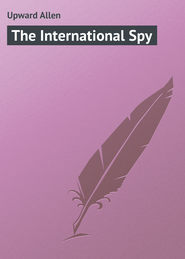По всем вопросам обращайтесь на: info@litportal.ru
(©) 2003-2024.
✖
Athelstane Ford
Настройки чтения
Размер шрифта
Высота строк
Поля
In this I succeeded after a fashion. He listened very readily to the history of the Israelites, and expressed a huge admiration for Joshua and some of the Judges. But when I tried to pass on to the New Testament I must confess I met with more difficulties.
“No, no, don’t read me that; it’s too good for an old rakehelly tar like me,” he persisted in saying. “Them apostles was fishermen, d’ye see, and the fishermen and longshore folk always was more peaceable and quieter-like than us deep-sea bilboes. You read me about that there fellow as slaughtered the Camelites; I understands him better. By Gosh, he gave ’em a warm time of it, on my swow, didn’t he! Not much use them Camelites showing their heads when Joshua was in the offing! He swept their decks for ’em, clean, every time.”
He meant the Amalekites. I could not quite approve of the spirit in which he took the sacred history, but still I felt that to get him to listen to the Scriptures at all was something, and the good seed might come up later on.
I pleased myself with these efforts to reform my poor old friend, and yet perhaps I should have been better employed in seeking to amend my own life. For though I can truly say that I lived honestly and soberly, yet all this time my heart was given up to thoughts of ambition and revenge, and the desire of riches; and the good impressions wrought upon me by my sufferings in the Black Hole had almost faded clean out of my mind.
I was not present at the taking of Chander Nugger, which was the next great event in the East Indies, and therefore forbear from describing it. But this affair served to display yet further the duplicity and shifting policy of Surajah Dowlah, whose conduct evidently changed from day to day as the passion of hatred of the English, or fear of Colonel Clive, obtained the mastery in his bosom. On one day he sent permission for us to attack the French, on the next he wrote strictly forbidding it. Colonel Clive would have gone against them without waiting for the Nabob’s leave, but Admiral Watson was more scrupulous, considering that to do so would be a violation of our recent treaty. Yet he did not shrink from upbraiding the Nabob in round terms, and sent him one letter in which he threatened, with the bluntness of a seaman, to kindle such a fire in his country as all the water in the Ganges should not be able to extinguish.
Finally the Nabob gave way, induced partly by his fears of the Pitans, a savage predatory tribe on the borders of Afghanistan, who from time to time broke into the Great Mogul’s dominions, and were now threatening to march as far as Behar. Accordingly a joint expedition was made, and Chander Nugger taken after a brilliant action, in which, as Colonel Clive fully acknowledged, the Admiral signalised himself by conspicuous courage and seamanship.
All this time I lay ill in Calcutta of a low fever, which I had contracted in the hospital while attending on old Muzzy. It was now his turn to nurse me, which he did most assiduously, being now recovered, and able to get about well enough by means of a wooden leg.
As I lay there sick day after day I began once more to see things in a truer light. I longed most painfully to be at home among the scenes and friends of my youth, and I resolved, once I had risen from my sick bed, to let no motives of ambition or interest detain me any further in Indostan.
I communicated these sensible resolutions to old Muzzy, who thoroughly approved of them.
“And I tell you what, Athelstane, lad, we’ll make our passage home in company,” he said. “I’ve got a tidy bit o’ prize-money left somewhere, enough to take me back to England, and mayhap a bit over, to keep me out of the workhouse when I gets there.”
He put his hands into his hairy bosom and drew out a small canvas bag, which he shook out upon the coverlid of the bed. The contents made a small heap of gold and silver, amounting, as near as I could judge, to about £100 or £150 in English money, though the coins were of all countries – rupees, French crowns, moidores, and many others.
The old boatswain put his head on one side, casting looks of affectionate pride on his treasure.
“There, my lad, that’s my little fortin’, enough to pay my freight through to Davy Jones’s locker, I daresay. And if there’s any of it left over, by Gosh! you shall have it, for I’ve neither parent nor friend in the world, nor I don’t so much as know the place where I was born. And drown me if I don’t love you, my young matey!”
I was so weak at the time that these hearty expressions of the old fellow fairly melted me, though I could scarce refrain from smiling at the thoughts of the legacy which I was like to inherit.
“You shall come with me and welcome,” I told him. “We will start together as soon as ever I can get off this bed; and when we get to England I will bring you to my own home, and ask my parents to provide you with a shelter for my sake.”
“That’s right enough,” he answered, “and very kind of you. But, mind, old Muzzy ain’t looking for no charity. Where I goes, I takes my little fortin’, and them as takes care of me will get the benefit of it, d’ye see.”
He swept up the money into his bag again, and had just restored it to his bosom when there came a sound outside the door, and who should walk in but Colonel Clive!
I strove to raise myself in the bed as he entered, but this he at once prevented.
“Lie still, youngster!” he exclaimed, walking up to the bedside, followed by Mr. Scrafton. “Why, how’s this; they never told me you were ill till I was on the point of starting for Chander Nugger, when I had no time to come and see you? But you are on the high road to recovery by this time, surely?”
“Thank you, sir, I am much improved,” I managed to stammer out, overwhelmed by this condescension on the part of so great a man. “And are the French beaten?” I asked anxiously, for I had not heard the news.
The Colonel turned to Mr. Scrafton and laughed.
“There’s my little purser all over!” he exclaimed, with evident goodwill. “The French are beaten, and driven out of Bengal, I trust for ever, and their factories are become ours. And since you were unable to be present at the action, and to share in the spoil, I have remembered my promise to you, and brought you a sword instead.”
He took the weapon from the hands of Mr. Scrafton, who was carrying it, and laid it on the bed beside me. At the same time Mr. Scrafton handed me a paper, duly signed, containing my commission as an ensign in the service of the East India Company.
I could only murmur out my gratitude for these marks of consideration; while Mr. Clive went on to say —
“And now you must make haste and get about again, for as soon as you are able to travel I have an important mission for you to discharge.”
“And what is that, sir?” I asked, not very heartily.
The Colonel noticed my diffidence, and gave me a searching look.
“I ought to have said it is a very dangerous mission,” he observed.
I felt my cheeks turn red.
“Then sir, I think I am well enough to undertake it,” I replied, with some little temper. And I sat up in the bed.
Colonel Clive burst out laughing, and seizing me by the shoulders thrust me down again.
“There, that is right; there is not so much hurry about it as to drag you out of bed just yet. But as soon as you are well enough I mean you to go to Moorshedabad.”
I uttered a cry of surprise.
“I have some messages to send to Mr. Watts, who is acting there on our behalf,” Mr. Clive explained. “The affair is too risky for me to trust the ordinary service, and besides, from all I hear, you have made a great impression on the Nabob, and may serve a useful purpose by remaining in Moorshedabad for awhile. But I will tell you no more till you are better able to hear it.”
And with this, and many kind expressions about my health, he withdrew.
It did not take long for me to shake off the remains of my fever under these circumstances, and the moment I was able to go out of the house where I lay, I went to wait on my patron.
Colonel Clive received me in his private room in the fort, and dismissing everybody else, opened to me the nature of the mission entrusted to me. The late proceedings of his enemies against him in Parliament have made this business so notorious to the world that I shall be excused for expressing it very shortly in this place.
To be brief, the Colonel informed me that the moment for our long-delayed vengeance upon the wicked and bloodthirsty Surajah Dowlah was at length arrived. Tired with his cruelties, his own subjects had cast about for a means of getting rid of him, and overtures had been received from the principal men of the Nabob’s Court inviting Colonel Clive to take part in a concerted scheme for his overthrow. A treaty had been drawn up between the parties, whereby it was provided that Colonel Clive should march against the Nabob’s army with his whole force, now increased by the arrival of other ships from the Coromandel coast, and should be joined on the battle-field by Meer Jaffier, who undertook to desert from his nephew and bring over the part of the army under his command to the English side. In return for these services, supposing the victory should be obtained, the Company was to receive a crore of rupees in compensation for the injuries inflicted by the Nabob, while many millions were to be divided among Colonel Clive, the gentlemen of the Council and the officers and men of both services. Surajah Dowlah was to be deposed from the musnud, and his uncle, Meer Jaffier, elevated in his stead, the Meer binding himself to pay these sums out of the Nabob’s treasure, and the payment being further guaranteed by Jugget Seet, the great banker of Moorshedabad, whose connexions extended over all parts of Indostan.
This treaty having been signed and executed by Colonel Clive and the other gentlemen of the Company, he now required me to carry it to Moorshedabad, were it was to be sworn to by Jugget Seet, the Meer Jaffier, and the other high officers of the Court who were parties to the design. At the same time he enjoined on me to observe the utmost secrecy.
“Remember,” he said, “that if once Surajah Dowlah or his minion Lal Moon should get an inkling of this plot, his rage would break loose against every one concerned in it. As it is Mr. Watts has had great difficulty in lulling his suspicions, and has several times been in great peril. But I suppose you are not the man to shrink back on that account.”
“Give me the treaty, sir,” I replied, “and I undertake to carry it to Moorshedabad. Am I to deliver it into Mr. Watts’s hands?”
“Why, yes; that is, if you find him still there when you arrive. But you must use the greatest caution in communicating with him. Above all, beware of the Gentoo Omichund, who has already once threatened to betray us. We have been obliged to provide a duplicate treaty to satisfy him, in which is included a stipulation for three millions of rupees to be paid to him on our success. But you will explain to Meer Jaffier that this is merely a trick to which we have been obliged by Omichund’s knavery. He shall not have a farthing.”
Mr. Clive spoke these words very sternly. At the same time he handed me the two treaties, one drawn up upon white paper and the other on red.
“The red treaty is the one to be shown to Omichund,” he explained. “Both must be executed by the parties to the conspiracy in Moorshedabad, but only the white one is to be sworn to. Do you understand?”
“Perfectly, sir.”
I rolled up the two papers and put them into my pocket. I did not then feel, nor have I since been able to understand, all the indignation which has been poured on Lord Clive’s head for this artifice, by which a treacherous, overreaching scoundrel was robbed of the blackmail he had tried to extort. As to the charge which has been made against that great man of having caused Admiral Watson’s name to be forged to the second treaty, I can only say that it was the general opinion at the time that the gallant Admiral was fully aware of what was being done, and, since he took no steps to restrain the use of his name, it appears to be all the same as though he had affixed it with his own hand.
However, it is not my intention to dwell upon these disputes, to which I am only induced to refer by a spirit of loyalty to my old commander and friend, for such he permitted me to call him.
“Remember,” the Colonel said to me at parting, “above all, to show no fear of Surajah Dowlah. Mr. Watts is too modest in his behaviour, and for that reason the young tyrant despises and ill-uses him. But I think that is not a fault you are likely to fall into; indeed, I have heard that during your former residence there you fairly awed the Nabob; so I have good hope that you will do the same again. The moment you have secured the execution of the treaties it will be time to fly, and as soon as I hear you are safe I shall put my troops on the march to Plassy.”
CHAPTER XVIII
MEER JAFFIER’S OATH







